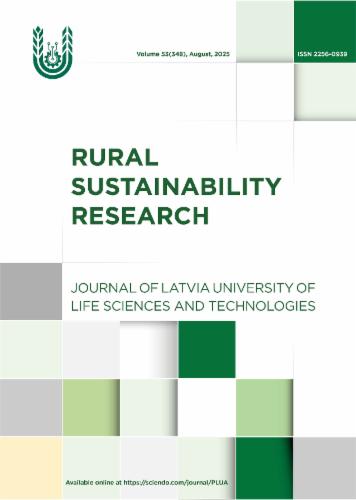Assessing the sustainability of hemp farms: a case study using the FAO SAFA tool
Published Online: Sep 01, 2025
Page range: 54 - 66
Received: Feb 18, 2025
Accepted: Jul 23, 2025
DOI: https://doi.org/10.2478/plua-2025-0005
Keywords
© 2025 Débora Muriel Carrasquinho Paulino et al., published by Sciendo
This work is licensed under the Creative Commons Attribution-NonCommercial-NoDerivatives 3.0 License.
Recent changes in cannabis regulations and increased global attention to sustainability have contributed to a renewed interest in hemp farming. However, farm-level assessments of the sustainability of hemp farming remain limited, creating a research gap that constrains a comprehensive understanding of its environmental, economic, and social impacts. To address this, the present study employs the Food and Agriculture Organization (FAO) Sustainability Assessment of Food and Agriculture (SAFA) tool to evaluate a hemp farm across four dimensions: environmental integrity, economic resilience, social well-being, and good governance. Using an exploratory single-case study design, data were collected through internal documents, a semi-structured interview with the farm manager, and publicly available sources The results show strong performance in the social and governance dimensions, with the farm contributing to rural development through community engagement and tourism. In contrast, the environmental and economic dimensions reveal constraints, such as the absence of formal biodiversity monitoring, dependence on external energy supply, and limited revenue diversification. The findings indicate a need to adapt sustainability assessment frameworks to better reflect informal and small-scale farming contexts, where tacit knowledge and interrelated sustainability dimensions influence outcomes. Although exploratory and context-specific, the study contributes to a broader understanding of sustainability in niche or emerging crop systems and suggests directions for refining assessment methodologies.
